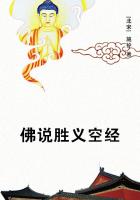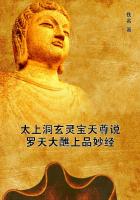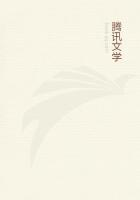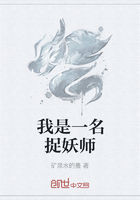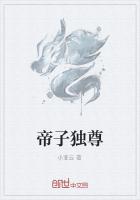My honest Scholar, all this is told to incline you to thankfulness; and to incline you the more, let me tell you, and though the prophet David was guilty of murder and *****ery, and many other of the most deadly sins, yet he was said to be a man after God's own heart, because he abounded more with thankfulness that any other that is mentioned in holy ure, as may appear in his book oā Psalms; where there is such a commixture, of his confessing of his sins and unworthiness, and such thankfulness for God's pardon and mercies, as did make him to be accounted, even by God himself, to be a man after his own heart: and let us, in that, labour to be as like him as we can; let not the blessings we receive daily from God make us not to value, or not praise Him, because they be common; let us not forget to praise Him for the innocent mirth and pleasure we have met with since we met together.
What would a blind man give to see the pleasant rivers, and meadows, and flowers, and fountains, that we have met with since we met together ? I have been told, that if a man that was born blind could obtain to have his sight for but only one hour during his whole life, and should, at the first opening of his eyes, fix his sight upon the sun when it was in its full glory, either at the rising or setting of it, he would be so transported and amazed, and so admire the glory of it, that he would not willingly turn his eyes from that first ravishing object, to behold all the other various beauties this world could present to him.And this, and many other like blessings, we enjoy daily.And for the most of them, because they be so common, most men forget to pay their praises: but let not us; because it is a sacrifice so pleasing to Him that made that sun and us, and still protects us, and gives us flowers, and showers, and stomachs, and meat, and content, and leisure to go a-fishing.
Well, Scholar, I have almost tired myself, and, I fear, more than almost tired you.But I now see Tottenham High-Cross; and our short walk thither shall put a period to my too long discourse; in which my meaning was, and is, to plant that in your mind with which I labour to possess my own soul; that is, a meek and thankful heart.And to that end I have shewed you, that riches without them, do not make any man happy.But let me tell you, that riches with them remove many fears and cares.And therefore my advice is, that you endeavour to be honestly rich, or contentedly poor: but be sure that your riches be justly got, or you spoil all.For it is well said by Caussin, " He that loses his conscience has nothing left that is worth keeping ".Therefore be sure you look to that.And, in the next place, look to your health: and if you have it, praise God, and value it next to a good conscience; for health is the second blessing that we mortals are capable of; a blessing that money cannot buy; and therefore value it, and be thankful for it.As for money, which may be said to be the third blessing, neglect it not: but note, that there is no necessity of being rich; for I told you, there be as many miseries beyond riches as on this side them: and if you have a competence, enjoy it with a meek, cheerful, thankful heart.I will tell you, Scholar, I have heard a grave Divine say, that God has two dwellings; one in heaven, and the other in a meek and thankful heart;which Almighty God grant to me, and to my honest Scholar.And so you are welcome to Tottenham High-Cross.
Venator.Well, Master, I thank you for all your good directions; but for none more than this last, of thankfulness, which I hope I shall never forget.And pray let's now rest ourselves in this sweet shady arbour, which nature herself has woven with her own fine fingers; 'tis such a contexture of woodbines, sweetbriar, jasmine, and myrtle; and so interwoven, as will secure us both from the sun's violent heat, and from the approaching shower.And being set down, I will requite a part of your courtesies with a bottle of sack, milk, oranges, and sugar, which, all put together, make a drink like nectar; indeed, too good for any but us Anglers, And so, Master, here is a full glass to you of that liquor: and when you have pledged me, I will repeat the Verses which I promised you: it is a Copy printed among some of Sir Henry Wotton's, and doubtless made either by him, or by a lover of angling.Come, Master, now drink a glass to me, and then I will pledge you, and fall to my repetition; it is a deion of such country recreations as I have enjoyed since I had the happiness to fall into your company.
Quivering fears, heart-tearing cares, Anxious sighs, untimely tears, Fly, fly to courts, Fly to fond worldlings' sports, Where strain'd sardonic smiles are glosing still, And Grief is forc'd to laugh against her will:
Where mirth's but mummery, And sorrows only real be.
Fly from our country pastimes, fly, Sad troops of human misery.
Come, serene looks, Clear as the crystal brooks, Or the pure azur'd heaven that smiles to see The rich attendance of our poverty:
Peace and a secure mind, Which all men seek, we only find.
Abused mortals I did you know Where joy, heart's-ease, and comforts grow, You'd scorn proud towers, And seek them in these bowers;Where winds, sometimes, our woods perhaps may shake, But blust'ring care could never tempest make, Nor murmurs e'er come nigh us, Saving of fountains that glide by us.
Here's no fantastick mask, nor dance, But of our kids that frisk and prance;Nor wars are seen Unless upon the green Two harmless lambs are butting one the other, Which done, both bleating run, each to his mother And wounds are never found, Save what the plough-share gives the ground.

